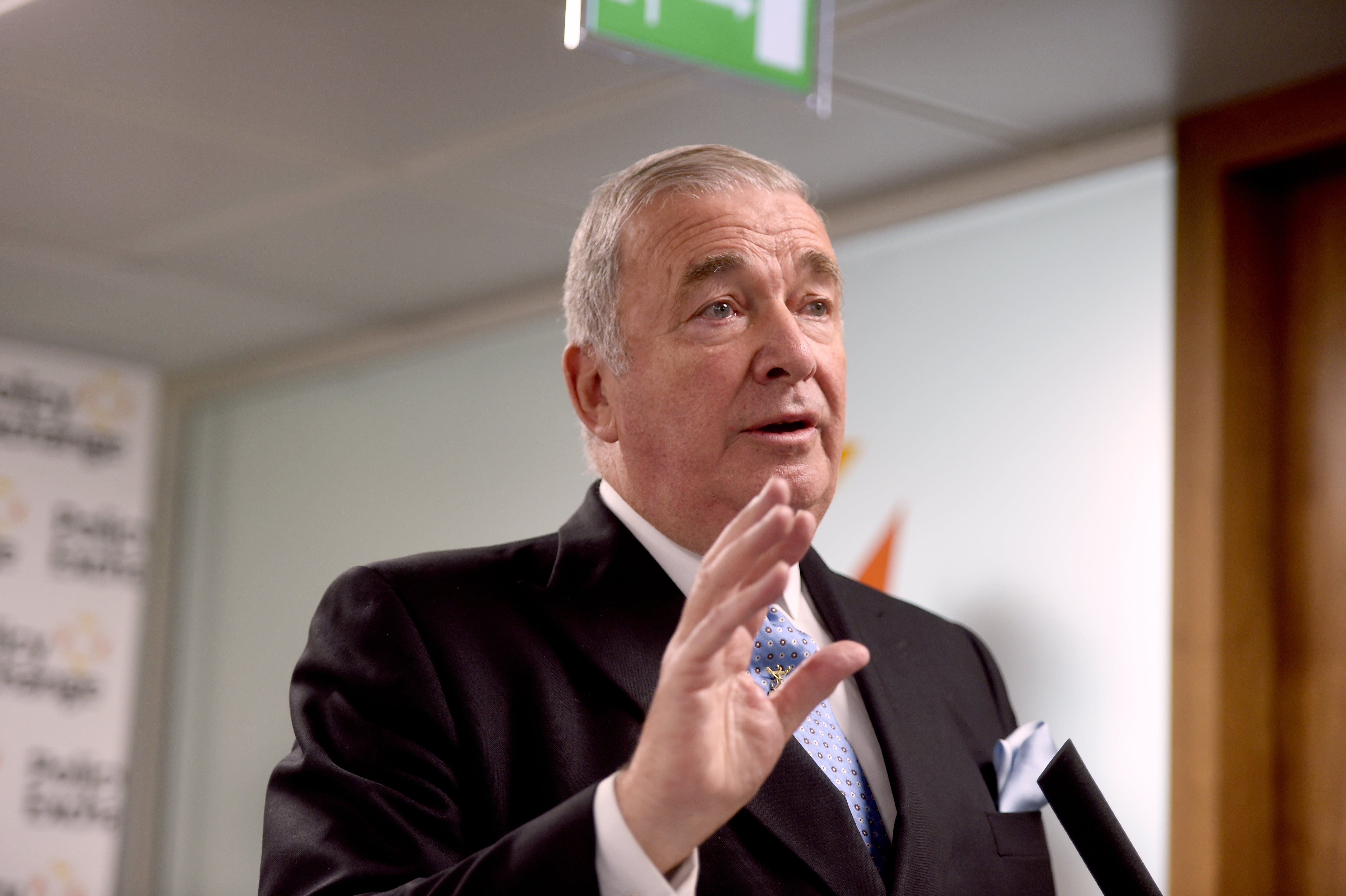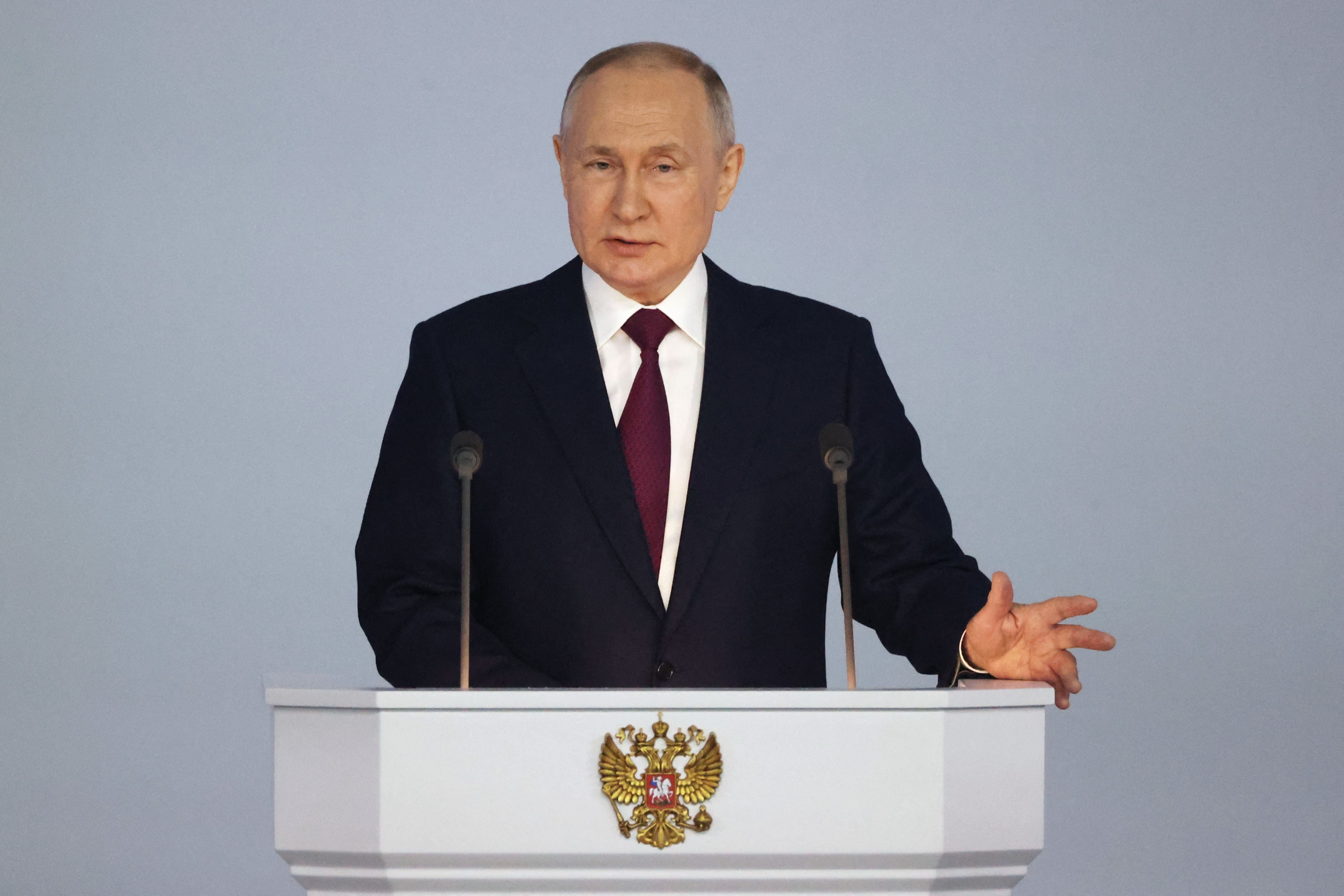UK undersea cables worth £7.4 trillion a day under ‘real threat’ from Russia
Lord West of Spithead said undersea cables and pipelines could be vulnerable to hostile activity

The UK’s vast web of undersea cables, interconnectors and pipelines are under a “very real and present threat” from Russia, a former Navy chief told Parliament.
Lord West of Spithead warned the Government that cables crucial to communication systems around the world are potentially vulnerable to hostile activity, which could cause “major damage to our nation”, including cutting financial activity of up to £7.4 trillion per day.
His comments came amid reports of increased Russian submarine activity thought to be involved in cable-mapping in preparation for war with Nato, in which targeting this infrastructure could help Vladimir Putin inflict maximum damage.
The former head of the Royal Navy told the House of Lords: “The actions and statements of President Putin would seem to indicate that he actually already considers that he is at war with this country and the West, if you just look at the raft of things he has done.“
There is no doubt that the Soviet Union, when it existed, was very interested in what was going on under the sea – and Russia today is probably even more interested in what is going on under the sea.

“If we stopped those cables working, £7.4 trillion worth of financial activity each day would be cut, 25% of our electricity would go and so on and so on.
“We put in place a National Maritime Information Centre in about 2010 and we needed a Joint Maritime Operations Coordination Centre alongside it, because we said very firmly we have to take threats to our territorial seas and exclusive economic zone very, very seriously.
“They are now in place, which is good, but they need to be really reinforced and the departments involved need to fully man them, because otherwise we are not going to be able to counter what is a very real and present threat and could cause major major damage to our nation.”
Defence minister Baroness Goldie assured Lord West that the Government considers these cables “critical to our national infrastructure” and that their security is taken “very seriously”.
She said: “The MoD (Ministry of Defence) in the UK operates a very effective surveillance programme – we have aerial surveillance out over the North Sea and the High North, we have submarine activity and, of course, we shall be assisted by the MROS addition to that fleet.”

One MROS (Multi-Role Ocean Surveillance ship), set to be operational by the summer, is the first of two which will act as subsea protection ships.
The 98-metre-long, adaptable offshore patrol vessel will be dedicated to safeguarding seabed telecommunications cables and oil and gas pipelines.This MROS is currently being refurbished in Merseyside, while the second ship is currently in the concept stage.
Lady Goldie added: “I in no way disagree with (Lord West’s) final conclusion and that is recognised across Government, which of course is why a number of Government departments all have a role to play in protecting that critical national infrastructure.
“Certainly we regard these installations as essential to our national infrastructure and we monitor a variety of risks they face.
“One of the things we do – because predominantly these subsea cables are owned privately and operated by private owners – but key departments work closely with them and, of course, supporting that is the National Risk Register, the National Protective Security Authority, the National Cyber and Security Centre.
“So there is a very comprehensive framework to support the private owners and operators of these cables and, of course, the MoD discharges a critical role in monitoring threat.”
Join our commenting forum
Join thought-provoking conversations, follow other Independent readers and see their replies
Comments

Bookmark popover
Removed from bookmarks